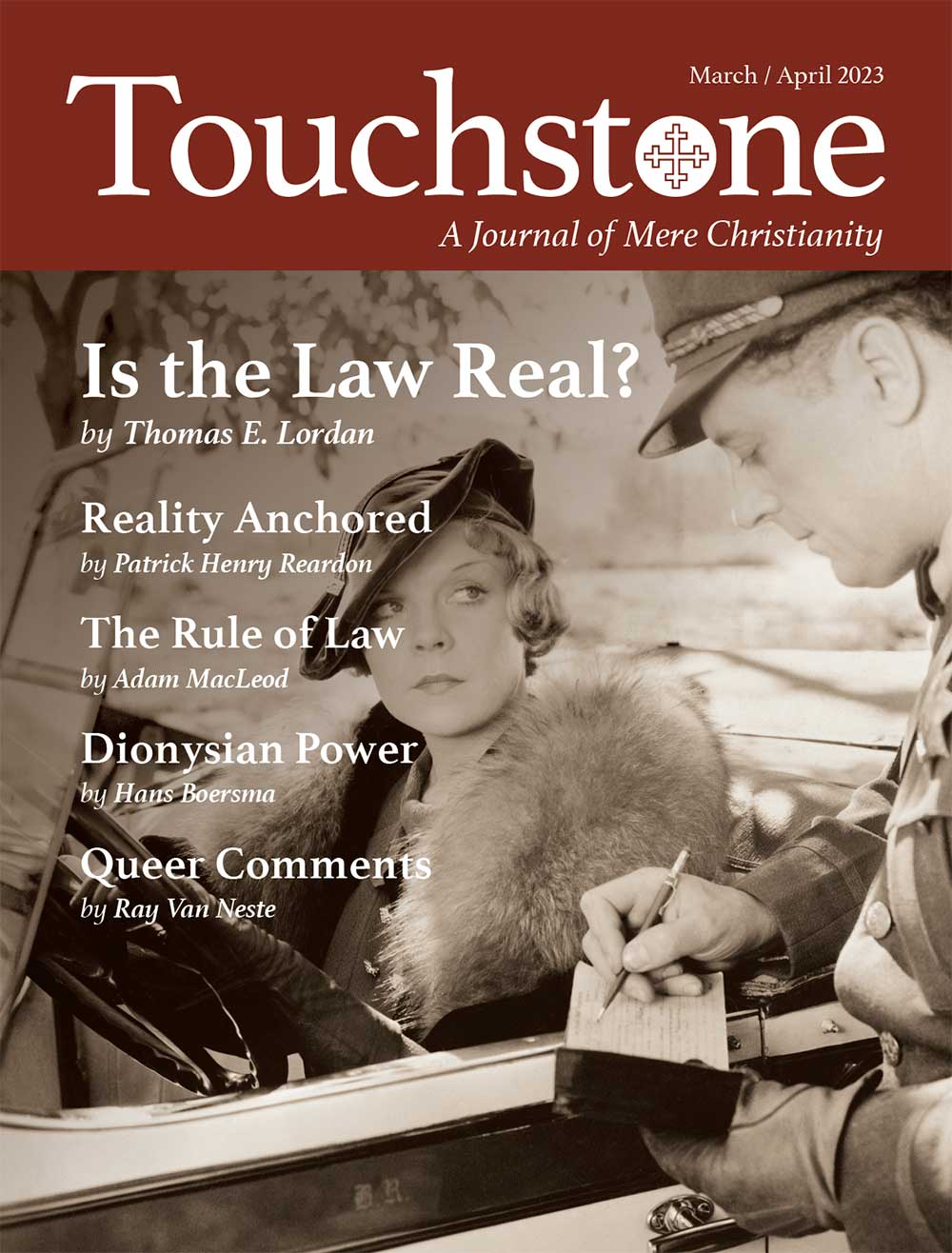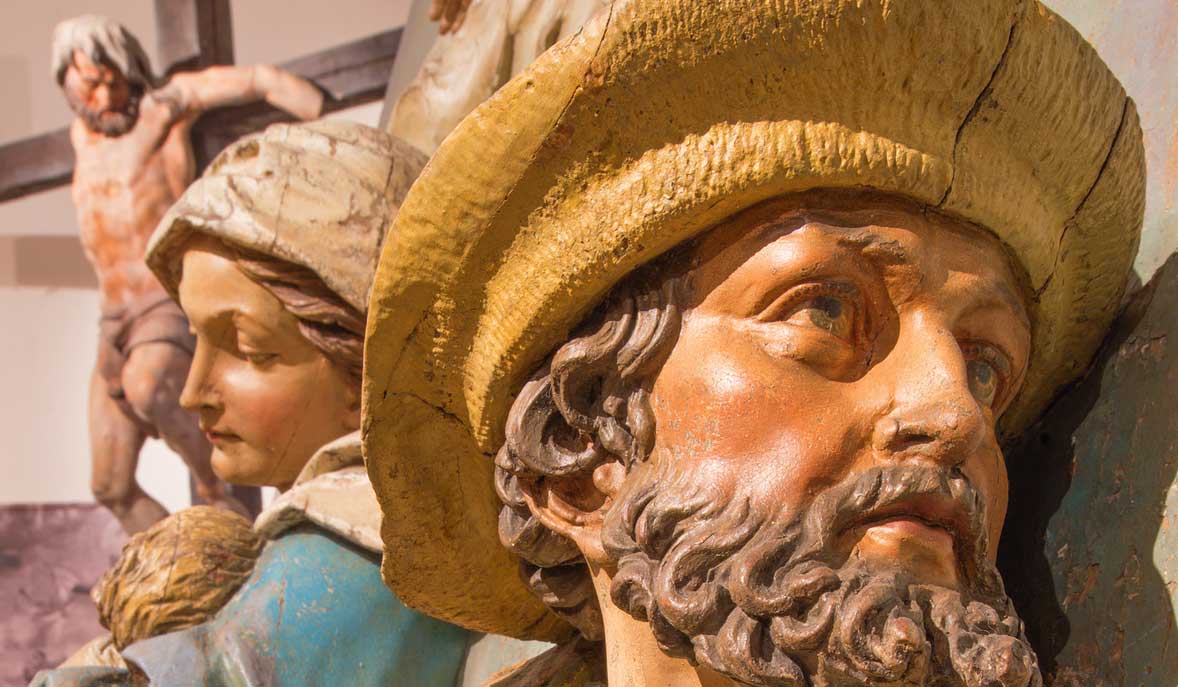Cosmic Anchor
The Reality of Divine Law
Among the philosophical questions commonly raised on the deck of the Pequod, arguably the most significant comes in a discussion between Stubb and Flask on the subject of anchors. In the course of it, Stubb inquires, “I wonder, Flask, if the world is anchored anywhere; if she is, she swings with an uncommon long cable, though.”
In 1851, the year that Melville launched the maiden-voyage of the Pequod, Stubb was hardly alone in his concern about the anchoring of reality. The universe, it must have seemed to many, was coming undone. Not long after the Enlightenment moved from Theism (“Yes, we’re attached to an anchor”) to Deism (“Well, yes, there is an anchor, but we’re not attached to it”), many notable thinkers began to take the next —and, I think, more logical —step into Atheism (“Look, if you can’t see the anchor, it’s not there”). This was the age of Feuerbach and Schopenhauer, of Bruno Bauer and Mikhail Bakunin.
It was also the age of Karl Marx. In October of 1851, as the first copies of Melville’s whale story were rolling off the press at 8 New Burlington Street in London, Karl Marx was busy gathering notes for the Eighteenth Brumaire in his home at 28 Dean Street, less than a mile away.
Marx was one of those speculators most responsible for disassociating the human windlass from the divine anchor.
An important aspect of man’s disassociation from God, Thomas Lordan explains in these pages, was the separation of human laws from “the law,” a transcendent “reality” (res) that can only derive from on high.
God and “the law,” Lordan argues, are logically inseparable. He writes,
It is only in the last couple of hundred years or so that legal philosophy has called the existence of “the law” into serious doubt, and this has occurred, not coincidentally, concurrently with modernity’s doubts about the existence of God. In many of our universities and law schools today, students will not hear about “the law,” unless it is to hear that such a thing does not exist.
Law & Wisdom
Instructed by Lordan’s article (and the contributions of Hans Boersma, Marcus Johnson, Adam MacLeod, and Ray Van Neste), let me further reflect that a related loss in modern thought is the very notion of legal wisdom.
“The law,” in which all our laws should find their validity, is not simply a projection of God’s will, but also an expression of his wisdom. For the Christian, God’s law is rooted —as are all created things —in the Logos. What God commands is not only to be obeyed; it is to be studied, pursued, and understood with a devout mind. The wise man prays, Da mihi intellectum, ut sciam testimonia tua —“Grant me understanding, that I may grasp thy testimonies.”
Patrick Henry Reardon is pastor emeritus of All Saints Antiochian Orthodox Church in Chicago, Illinois, and the author of numerous books, including, most recently, Out of Step with God: Orthodox Christian Reflections on the Book of Numbers (Ancient Faith Publishing, 2019).
subscription options
Order
Print/Online Subscription

Get six issues (one year) of Touchstone PLUS full online access including pdf downloads for only $39.95. That's only $3.34 per month!
Order
Online Only
Subscription

Get a one-year full-access subscription to the Touchstone online archives for only $19.95. That's only $1.66 per month!
bulk subscriptions
Order Touchstone subscriptions in bulk and save $10 per sub! Each subscription includes 6 issues of Touchstone plus full online access to touchstonemag.com—including archives, videos, and pdf downloads of recent issues for only $29.95 each! Great for churches or study groups.
Transactions will be processed on a secure server.
more on law from the online archives

37.5—Sept/Oct 2024
Why Law Schools Can't Teach Law
A sidebar to How Law Lost Its Way by Adam MacLeod
more from the online archives
calling all readers
Please Donate
"There are magazines worth reading but few worth saving . . . Touchstone is just such a magazine."
—Alice von Hildebrand
"Here we do not concede one square millimeter of territory to falsehood, folly, contemporary sentimentality, or fashion. We speak the truth, and let God be our judge. . . . Touchstone is the one committedly Christian conservative journal."
—Anthony Esolen, Touchstone senior editor












